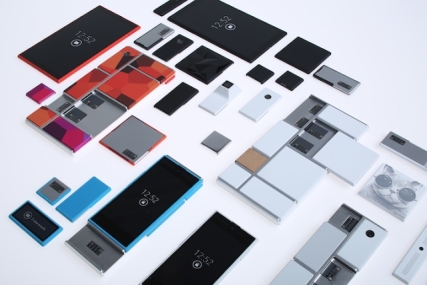Phonebloks thinks smart phones have problems solvable if they were designed modularly.
Motorola, with its Project Ara, also is working on an open source project in the same area, and Motorola is working with Phonebloks to design a hardware framework based on third-party modules held together by an "endoskeleton".
Apparently, the first modular phone prototype of such a framework, with modules, is “nearly ready.”
Now China-based Xiaomi says it also has discussed creating its own modular phone system. That would be important, should it materialize, as it might be an important step in creating a new market for modular phones.
Firms often say it is helpful when a couple of other providers enter a market, instead of one firm producing a type of product, as that legitimizes the market.

image via Motorola
In principle, modular smart phones might be attractive for several reasons. Users could customize their hardware features to some extent, as they now customize the look and feel of their screens and have personalized app loads.
That should allow for the possibility of lower-cost devices as well, as devices are custom-built the way Dell used to assemble PCs only after they were ordered.
Less waste would be another advantage, since a device would not have to be thrown away when a major upgrade was required. Perhaps a module swap would do.
Such devices also would to a greater extent be easier to repair, as a module swap would be possible in some cases, not replacement of a whole device.
The whole idea is to create a smart phone that is completely modular, so each component, including the display, processors, battery, storage, camera, Wi-Fi and Bluetooth, for example, all are all separated into discrete blocks that all attach to a main board and are secured by just a couple of screws.
Some might say the whole point, aside from the other values, is that modular phones might tend to reduce the cost of devices far more than presently is possible, something many believe is part of the reason why Google supports Motorola.
Some argue that what Google expects to achieve, by manufacturing smart phones, is to drive out overall costs of devices.
That would help Google in a larger sense by making it possible for everyone to use mobile computing. It’s the same theory, some would say, behind Google Fiber. The whole point is to cause other Internet access providers to make significant and continual upgrades in speeds, while also setting the stage for significant retail price drops.
Edited by
Ryan Sartor  QUICK LINKS
QUICK LINKS